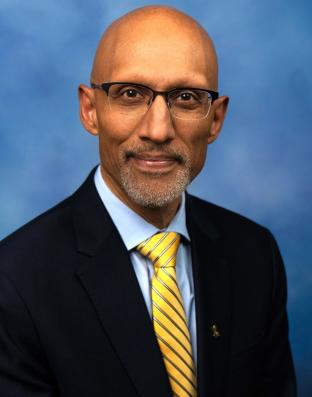The breadth of collaboration within the MHRI’s expanded focus continues at the dawn of the 21st century, driving advances ranging from genetic and molecular to behavioral and clinical.
Appointed in 1995, the leadership team of Drs. Huda Akil and Stanley J. Watson, Jr. guided MNI forward, emphasizing building new structures and teams to support basic and translational studies in the age of neuro-genomics and neuro-informatics.
Two important developments impacted the Institute during this period. One strengthened its intramural impact, while the other significantly raised its national profile.
First, a greater number of secondary faculty appointments improved the link between the Institute, the UM Medical School’s clinical and basic science departments, and the UM College of Literature, Sciences, and the Arts.
Second, MHRI leadership played a pivotal role in establishing the Pritzker Neuropsychiatric Research Consortium.
In 2005, when the Institute celebrated its 50th anniversary, the Regents of the University of Michigan changed its name to the Molecular and Behavioral Neuroscience Institute (MBNI) to better reflect the evolution of its collaborative research mission and its cornerstone research in neural organization and signaling and the dynamically changing brain across the lifespan.
This marked the first time a university research unit used the term ‘neuroscience’ in its name. The term, believed to have been first coined at U-M by Ralph Waldo Gerard, underscores a commitment to linking the molecular and behavioral aspects of brain research.
Neuroscience is highly interdisciplinary and requires approaches ranging from molecular mechanisms to behavioral and social analyses. It demands state-of-the-art technologies, novel tools, and computational and imaging power.
The MBNI served for over 60 years as one of the key nodes of neuroscience research on campus, with seminal contributions to neuroscience, distinguished national and international leadership, and important partnerships both within Michigan Medicine and across colleges. Yet, over time, it became clear that a campus like the University of Michigan - which combines schools and colleges that span all levels of human knowledge - presents a unique setting for addressing the needs of a powerful and far-reaching neuroscience initiative. The Institute and our colleagues in U-M’s greater neuroscience community have made innumerable seminal contributions to the field. Today, the depth and breadth of neuroscience research and training at Michigan can currently be found in seven different schools and colleges, 27 departments, and 15 institutes and centers.
To that end, the UM Medical School Leadership sought to re-invest, coalesce, and unite the large neuroscience community across the University. The initial step toward developing a robust, cross-campus neuroscience institute began on December 5th, 2019, with the UM Board of Regents approving a new, more encompassing name for the Institute, the Michigan Neuroscience Institute (MNI). Drs. Akil and Watson served as the co-Directors from January 2020 - 2021.
The MNI harnesses those highly interdisciplinary collaborations, creating new synergies, enabling groundbreaking discoveries, and enhancing Michigan Neuroscience’s visibility and impact.





